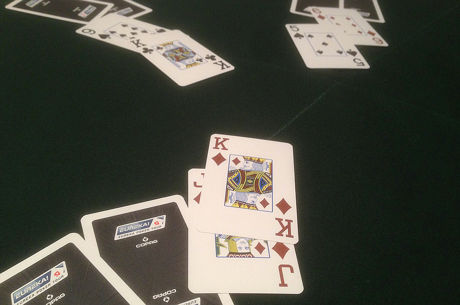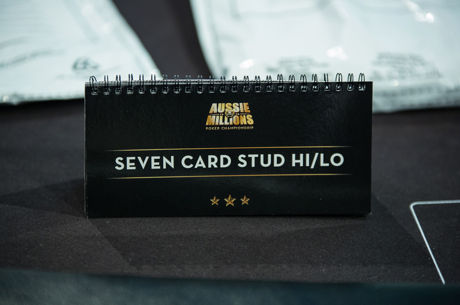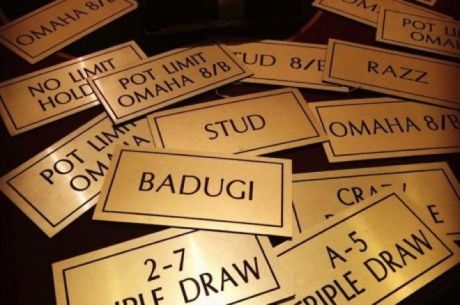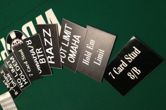Seven-Card Stud Tips for Every Street
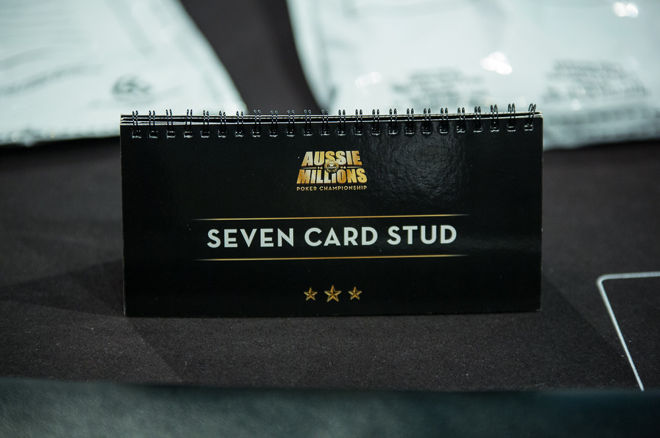
It��s not uncommon these days for players to enter rotation game tournaments like H.O.R.S.E., H.O.S.E. (or S.H.O.E.), the 8-game mix, and the like. With hold��em as popular as it is these days, and stud relatively less popular, your biggest advantage may be in the stud games �� provided you know at least a little something about stud.
This is a brief article to give you a few tips on how you might gain an advantage over those who are unfamiliar with seven-card stud and are just playing a typically tight and conservative style as they try not to lose too much in the stud round. I��ll also throw in a few defensive rules for you to follow, too, to help you save money on hands that are not likely to be productive.
Third Street Strategy
First off, don��t play a three-flush in every situation. Ditch the hand for a bet if more than two of your suit are out in front of other players.
Similarly, fold the hand if two or more of your suit are out and you don��t hold at least a fully live king-high among your first three cards. If your flush draw goes south on fourth street, you want three additional outs that might pair your top card and give you top pair.
Next, consider your position relative to the players who have not yet acted when contemplating a reraise. If, for example, a premium card of lower rank than your upcard raises, you should consider raising with a higher upcard, but only if none of the other players have yet called the initial raise.
So, for example, with a third street holding of (7?7?) A?, if a player with a Kx has raised the bring-in and the two players after him have folded, you may reraise here to limit the field, making it two bets to stay. But if one or more players have already called the king, don��t be so eager to raise, as you are likely to have a lot of company going into fourth street since it��s only costing your opponents one more bet (rather than two) to see another card.
Fourth Street Strategy
Here's a good fourth-street tip to remember �� it sometimes makes sense to raise on fourth street, even if you don��t think you are in the lead, to give yourself a chance to see a card for free on the more expensive fifth street, when the bet size doubles.
If you have a pretty tight image, for example, you could raise the high card who initiates the betting on third street and then again on fourth street when you hold (A?9?) 9?K?. You may take down the pot right there, if the (XxXx) Ax player, who raised on third street, was just continuing to represent he had a pair of aces (many good players do this).
Similarly, even if he calls, since he will continue to be high on board on fifth street unless you improve to two pair, he will have to go first and will likely check because of your fourth street raise. You then can choose to check behind him, having bought this free fifth street round for half the price on fourth street. Or, if you read him for being weak, you can bet here and expect to take down the pot.
Fifth Street Strategy
This is a good opportunity to take the pot away from the aggressive player who represents a premium pair on third and fourth street, but who then gives up on the bluff on fifth street and checks.
Say, for example, your opponent raised with an Ax showing on third and you called. He may well try the play again on fourth if it doesn��t look like you have improved, thinking "hell, it��s only another small bet, I might as well keep trying to steal." But if you call and he draws another blank on fifth street, he is apt to check. You bet here no matter what you have, and expect he'll often fold and concede the pot.
Sixth Street Strategy
Most of the time, if you��re seeing sixth street you are going to the river, so sixth-street play often tends to be fairly automatic. Even so, one thing to keep in mind is to avoid ��drawing dead.��
For example, if you��ve been drawing for a flush, make sure it��s the nut flush, or toss your hand away on sixth street for a bet on this round, thereby saving yourself two bets on the hand if you hit and lose to a better flush. Similarly, save yourself a bet or two by folding your straight draw if you even suspect you may already be up against a flush or a full house.
Seventh Street Strategy
Look for opponents who shuffle or nestle their cards after being dealt seventh street. Some players just can��t stand the notion of simply looking at their final card. So they shuffle the cards, often lifting them up in the process. Some players unintentionally expose one or more of their downcards when they do this. Watch for it. As they say in bridge, ��a peek is worth two finesses.��
Similarly, some players like to put their cards ��in order�� when they look at their final card. If they made the straight, for instance, they put it in order with the other down cards, nestling it between them or on one end. Or they put it next to the card of the same rank if they have a pair. This is an indication that they made their hand on the river. Respect their bets.
If you��re playing in a tournament, the value of a single bet might be increased because of your nearness to the money or to a particular increase in the payout schedule. Even so, all other things being equal, it often makes sense to call on the river even if you think (but aren��t certain) that you��re beat. The size of the pot relative to the size of one final bet will nearly always mean you��re getting the right pot odds to call.
Say, for example, a player who has been representing a flush draw bets on the river. You are pretty sure that he made that flush. His bet is $100 and the pot has $1,300 in it from all of the betting on prior rounds. Even if you think you only have a 10% chance of being wrong about your estimation that he has a flush, since you��re getting 13-to-1 pot odds for your call, you should call.
Similarly, you should tend to bet borderline hands into opponent��s draws on the river, since your opponents are likely to call you even with very weak hands when they don��t make their draws, thinking you might be trying to steal a large pot for a single bet.
These tips alone surely won��t turn you into a champion player, but they may give you the small edge you need to make the difference between losing and winning, or making it into the money in a stud tournament.
Ashley Adams has been playing poker for 50 years and writing about it since 2000. He is the author of hundreds of articles and two books, Winning 7-Card Stud (Kensington 2003) and Winning No-Limit Hold��em (Lighthouse 2012). He is also the host of poker radio show House of Cards. See www.houseofcardsradio.com for broadcast times, stations, and podcasts.
Want to stay atop all the latest in the poker world? If so, make sure to get PokerNews updates on your social media outlets. Follow us on Twitter and find us on both Facebook and Google+!

